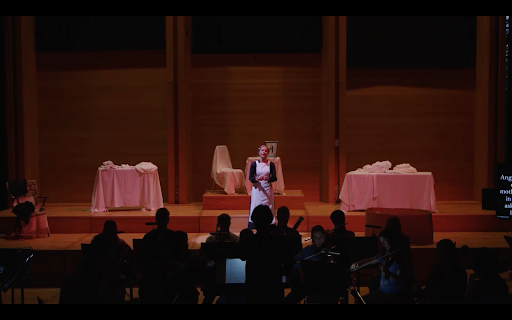Energy Cafes: A Well Meaning False Advertisement
- Izzy Sanok
- Oct 3, 2024
- 2 min read
Many of you may wonder, “what is an Energy Café?” and I wish I could tell you. With my fresher naivety, I spent my first week here scrolling through my inbox searching for events to attend and fell upon an informational blurb about this week’s Energy Café: Becoming Prosumers with Doctoral Candidate Lorenzo Sapochetti. Energy Cafés are held regularly and are advertised as “an informal, open and inclusive space” where members of the St Andrews community can hold open discourse on topics pertaining to sustainable energy. They’re publicised through Sustainable Development email exchanges as well as through weekly events announcements.
Having read “it is intended to encourage collaborations, expand research horizons, and inspire new ideas and questions[...],” I assumed the event’s purpose was to establish active discussions between students and faculty of the University. However, that is not what I experienced. Therefore, I was a bit taken aback when I sat and listened to a doctoral presentation prolonging three-quarters of the event. Being a hybrid event, there were many minor moments of technical difficulties which decreased the fluidity of the event.
The presentation, given by Doctoral Candidate Lorenzo Sapochetti, was captivating and well-researched. However, the event was truly a glorified presentation. If one were to classify this Energy Café as a discussion-based event, I would have to politely and openly disagree. For approximately forty-five minutes the group of attendees, about twenty professors and students, watched and listened to the Doctoral Candidate examine and draw conclusions of his studies with Ènostra.
The actual subject matter at hand I found to be engrossing, yet complex, for a feeble-minded fresher. I understand this is due to my lack of expertise in energy corporation jargon, however, I would say for the average university student, it was rather advanced, unless they could adequately explain the moral economy and its entwinement with modern energy solutions. In addition to the complexity of the presentation, the Energy Café ran from 1-2pm on a Tuesday which couldn’t be more inconvenient for the average student. Given that nearly every module hosts lectures at that hour during weekdays, there were very few students in the crowd. Perhaps student attendance would be improved by altering the event’s timings and advertisements.
The closing fifteen minutes were filled with questions from the crowd that the presenter answered. This conclusion to the event reflected the Café mission statement far more than the preceding moments. After this, they invited all members who attended in person to join the Doctoral Candidate in a coffee reception. Again, given I had many lectures through the afternoon, I unfortunately couldn’t attend.
In conclusion, I hope they make alterations to make Energy Cafés more accessible both regarding timing and subject matter. It was a shame more Sustainable Development students couldn’t attend due to overlaps in schedules. These events could provide members of the St Andrews community with broader perspectives and insights on sustainable energy solutions. However, with the continuation of scheduling conflicts and semi-false advertisement, I fear not as many people will be reached, meaning fewer members of our community can celebrate and discuss the importance of energy advancements.
Photo: University of St Andrews







Comments